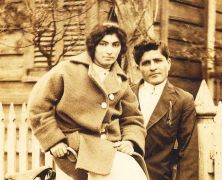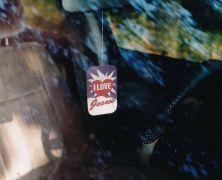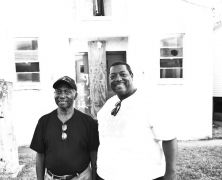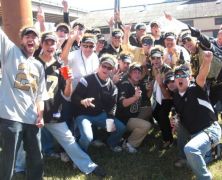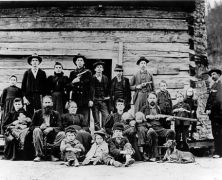Charles is in the bedroom covered up in the bed. There are eleven broken monogrammed glasses here on the kitchen floor and every window in the house is locked from the inside.
Portfolio: Photographs
Back in the 1830s, the Jews peddling their wares came north through the ports of New Orleans and Mobile to settle as merchants in Selma, already a fledgling economic center. As the Black...
Religion Sets a Social Agenda
Much of the great propensity of Southern white working-class voters to align with conservative principles has to do with the distinct brand of conservatism in the South. It is far more...
Cedars in the Pines
When the image of Arab Americans is evoked, the vision that typically comes to mind is that of recent immigrants, Muslim, living in the Northeast or Detroit area. You rarely recognize them...
Not Tribal, Just Neighborly
Historically, the South has been called the most “native” region of the country. To quote short story writer Elizabeth Spencer, “There were Yankees ‘up there’ we said to ourselves...
The Boucherie
The anchorwoman for the Baton Rouge news announced that a livestock trailer carrying over a hundred head of cattle on their way to processing had plunged over the entrance ramp railing at...
Southern Religious Tribalism
Campbell challenges Christianity, and any religion that hopes to speak to the people of an evolving new age, to grow beyond what he terms “the tribal” into that which is more genuinely...
Entertaining the Spirit
When you work on a book, there are stories within stories that come to you, and—you can’t help it—they pull you in. That’s how we found ourselves in front of a two-story white...
The Tribal Roots of Team Spirit
Sports are only less violent surrogates of precisely the same human need, to belong to a tribe that's doing well because as the tribe's chances go, so go yours. Think about the trappings of...
The Calico Nation and Trading Moons
I walk carefully among all people because they may be related to me. As a matter of fact, Kathryn Cooper, a Cherokee Italian friend of mine, with whom I had the great pleasure of working on...
We Love Our Tribes
Tribe-like groupings, while still poorly understood, seem to go back at least seven million years after the chimps and ape-men diverged from gorillas. All of these primates, and, indeed,...
Interview with Lisa Alther
There’s an incredible sense of relief that goes with unearthing buried truths. It’s almost as though your remote ancestors are crying out to you to be acknowledged. I feel much more at...
Fall 2012
In this Fall issue of South Writ Large, we explore tribalism in all its creative manifestations. Since time immemorial, humans have been driven to form organic or artificial groups, whether for survival (think prehistoric tribes or high school cliques) or to further common interests (political parties, Rotary clubs) or to find community (places of worship, knitting circles, gatherings of sports fans). Fall is also the season when the family clan—that most primordial of tribes—gathers around the groaning table after the harvest, with unpredictable dynamics, as this issue’s fiction excerpts attest.





